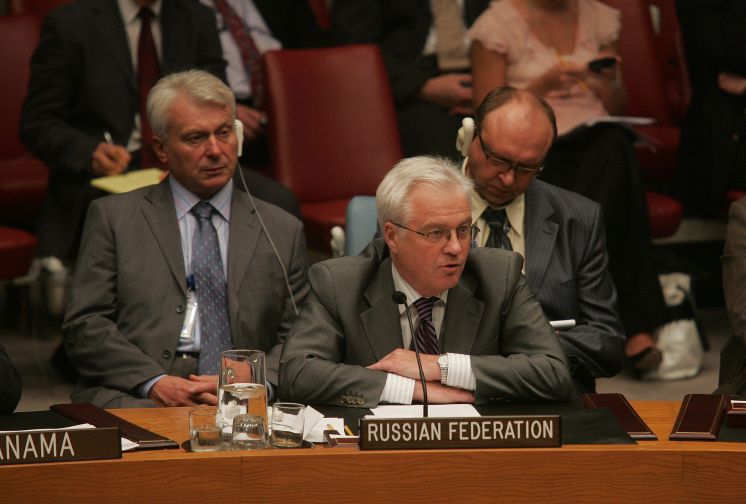China and Russia veto UN sanctions on Mugabe

China and Russia vetoed a UN Security Council resolution last night to impose sanctions on Zimbabwe's President Robert Mugabe and 13 of his henchmen.
The rejection of the measures, including an arms embargo, a strict travel ban on the leadership, and financial restrictions is a major blow to international efforts to force Mr Mugabe to quit the presidency.
Diplomats said the move sends an unmistakable signal to Mr Mugabe that the international community will look away rather than intervene to protect the country's democratic institutions.
The British ambassador said the Security Council had fallen down in its duty to defend the democratic rights of ordinary Zimbabweans. Sir John Sawers said: "The people of Zimbabwe need to be given hope that there is an end in sight to their suffering. The Security Council today has failed to offer them that hope."
The Foreign Secretary, David Miliband, said: "I am very disappointed that the UN Security Council should have failed to pass a strong and clear resolution on Zimbabwe. In particular, it will appear incomprehensible to the people of Zimbabwe that Russia, which committed itself at the G8 only a few days ago to take further steps including introducing financial and other sanctions, should today stand in the way of timely and decisive security council action. Nor will they understand the Chinese vote.
"The UN still has a key role to play in supporting African efforts to bring an end to this crisis, and we will continue to press for the appointment of a UN envoy."
The US ambassador to the UN, Zalmay Khalilzad, expressed disappointment and said he found it "disturbing" that China joined with Russia.
Mr Mugabe lost the first round of the presidential election to Morgan Tsvangirai, leader of the Movement for Democratic Change, last March, with official results giving Mr Tsvangirai less than the 50 per cent share needed to avoid a run-off. But the opposition withdrew from the second round after many of its supporters were assaulted and murdered by Mr Mugabe's Zanu-PF supporters.
While international criticism of Zimbabwe has been shrill, several council members expressed reservations about imposing sanctions. South Africa's ambassador to the UN argued strongly against the move. The South African leader, Thabo Mbeki, reportedly told G8 leaders this week that UN sanctions could lead to civil war.
Russia's UN ambassador, Vitaly Churkin, said that sanctions would have taken the UN beyond its mandate by "artificially elevating them to the level of a threat" to international peace and security.
China's UN ambassador, Wang Guangya, whose nation is one of Zimbabwe's major trading partners, also expressed fears of nation-tinkering and said Zimbabwe was best left to conduct its own talks on how to resolve its political crisis. "The development of the situation in Zimbabwe until now has not exceeded the context of domestic affairs," he said. "It will unavoidably interfere with the negotiation process."
The veto occurred as talks were taking place between Zanu-PF and the MDC in the South African capital, Pretoria. The African Union wants the government and opposition to form an administration of national unity and last week Mr Mugabe accepted the need for talks. But he insisted the opposition recognise him as President first.
Mr Tsvangirai has refused to join talks with Mr Mugabe and Mr Mbeki at Zimbabwe's State House, saying it would amount to recognising his rival as President when he had stolen the election.
The MDC has also set pre-conditions before formal talks can open, calling for an end to violence against its supporters and the release of 1,500 political prisoners. And Mr Tsvangirai has demanded an expanded mediation team that includes a permanent AU envoy.
How they voted
FORBelgiumBurkina FasoCosta RicaCroatiaFranceItalyPanamaUKUnited States AGAINSTChina (veto)Russia (veto)LibyaSouth AfricaVietnam ABSTAINEDIndonesia
Join our commenting forum
Join thought-provoking conversations, follow other Independent readers and see their replies
Comments
Bookmark popover
Removed from bookmarks